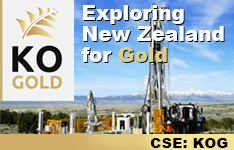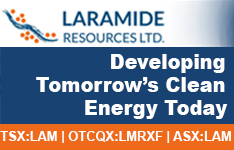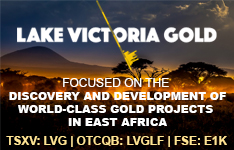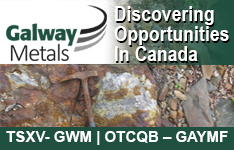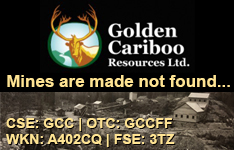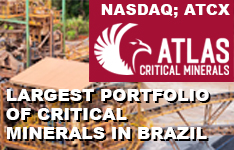Steven Palmer: One thing we did not do is change our strategy during the financial crisis. Many investors changed their strategies, and it didn't work out so well.
TLSR: After the crisis period in 2008, you had a lot of value in your fund. Is that what you mean?
SP: Yes. We stuck with the names we believed in and added to them at their very depressed prices. They rebounded quite strongly.
TLSR: At the end of January of this year you had $90 million (M) under management in your AlphaNorth Partners Fund. How large would you allow this fund to grow? At what point would you cut off investment?
SP: We have already implemented restrictions to new investors. I always said, from the launch of the AlphaNorth Partners Fund, that once it got to $100M in assets, we would take steps to limit new investors. We have been allowing limited new investments recently, but this opportunity will soon be closed. Our focus now is on building assets in our mutual fund, the AlphaNorth Growth Fund.
TLSR: Staying with your AlphaNorth Partners Fund for a moment, it was up 5.6% in January. How did you do in February?
SP: We were up 2% in February.
TLSR: You were weighted at about 11% in biotech, which did quite well in January. Was your biotech performance strong enough to do some of the heavy lifting?
SP: January was not particularly good for our sector weighting in biotech. In Canada, the best performing sector in January was materials. We have a couple of biotech names that did well in February, but not so much in January when they were somewhat flat.
TLSR: Do you intend to add any more biotech or specialty pharma companies to your portfolio?
SP: Yes. I am always looking for good opportunities. The current weighting of about 11% is probably adequate, and that is significantly higher than its index weight in the S&P/TSX Composite, which is only 1.7%. So, we are already considerably overweight.
TLSR: If you wanted to, could you add private equity to your Partners Fund portfolio?
SP: Yes, we do private sometimes.
TLSR: Would you consider biotech, specialty pharma or any life sciences companies as a private equity holding?
SP: I would consider it, but generally I try to stay away from the private life sciences companies because that really implies they are much earlier stage. The earlier stage you go in biotech, the higher the risk. So I tend to focus on some of the later-stage companies, which implies that they are public already.
TLSR: In your AlphaNorth Partners Fund you have energy, metals, precious metals, technology and life sciences. Did you just find your great biotech ideas, or did you consciously set out to allot a segment of your portfolio to it?
SP: We like to maintain a diversified portfolio. Many funds in Canada are solely resource-focused, but I find that to be much higher risk. So we maintain a balance of biotech and technology, as well as resource investments. In the late 1990s, when I was managing another small-cap portfolio, we had significant weightings in tech and biotech, so it is something I have always watched. Resources have been more of a focus for many investors in recent years because biotech companies haven't performed as well. Everything is cyclical, and I think the life sciences merit exposure in the portfolio.
TLSR: With energy, you can drill a well and develop it in a few years. It's the same with a mine. But it could take 10–15 years to develop a drug. Biotech presents special due diligence considerations, doesn't it?
SP: The timeframe is not dissimilar. You start from square one in the clinic in a biotech situation, progress through phases 1, 2 and 3, and then make the new drug application (NDA). That takes many years. But the same thing applies on the mining side, where you go from grassroots exploration to getting some initial good results, then proving up the resource, doing your feasibility study, spending all the capex to build the mine and getting into production. That is all a very long process as well.
TLSR: Would you consider a biotech company that has nothing in the clinic and has a long way to go before it could monetize any of its technology? How do you choose a biotech stock?
SP: For me, it is all about risk versus reward. So we look for companies that are working on products that have huge market potential and situations that we view as lower risk. We also prefer companies that have multiple products. I view biotech similar to mining companies actually. Whether it is exploration success or clinical success, the rewards can be dramatic.
TLSR: Do you look for takeout candidates in biotech, or do you look for companies that are going to continue to grow organically?
SP: It is always good when you have a company that is a takeout target, but in biotech it is much harder to predict compared to some other sectors, where it is more obvious. At the end of the day, it is all about the company fundamentals. If a company gets taken out at a premium valuation, that is just a bonus.
TLSR: Do you have an overall theme with respect to life sciences?
SP: Three things: late-stage products; multiple products, meaning no one-trick ponies but lots of avenues to success; and low-risk products from companies that have already started to generate revenue from their products.
TLSR: Can we talk about some of the life sciences companies you own?
SP: I can comment on Trimel Pharmaceuticals (TRL:TSX).
TLSR: An exciting company, no pun intended.
SP: It is interesting because it attracts a lot of media attention with its unique application. Its lead product, CompleoTRT (intranasal gel formulation of testosterone), is a phase 3 product for testosterone replacement in men, which is more of a problem than people realize. Often men who have low testosterone are misdiagnosed and symptoms are attributed to other problems. Current treatment is to put a testosterone cream on a patient's skin and have it absorbed. The problem is that there is often a high degree of side effects. Clothes can't be washed with other family members' clothes or the testosterone can get transferred onto them. If you have young kids, and testosterone gets transferred onto their clothes or their own skin by contact with a patient who is using it topically, it could have an impact on them and cause them to mature prematurely, for example. You cannot get the cream on the bed sheets or touch anybody with it, or it may be absorbed by them. It is a $1.5 billion (B) market for the existing products in the U.S., and Trimel is just entering phase 3. It could have an approved product next year.
TLSR: The difference here is that it is an intranasal delivery system. Perhaps this market could be expanded, with the urologist or internist being less hesitant to prescribe it for a patient?
SP: Yes, for sure. I do think that.
TLSR: And Trimel also has Tefina (intranasal low-dose gel formulation of testosterone) in phase 2 for women who have been unable to achieve orgasm. Recent data show a 27% overall response in the experimental arm versus 10% for placebo. The stock has reacted quite well to that recent news.
SP: Yes, Trimel presented the data on Valentine's Day in Toronto at a small conference. Product results were very favorable.
TLSR: I realize it was only 56 patients, and the overall response was statistically significant, but I was wondering if you thought it justified that kind of dramatic uptick in mid-February.
SP: To get statistical significance in a sample that small is quite promising. The lead investigators of this drug are very optimistic that phase 2 will show similar results.
TLSR: Is Trimel fairly valued now, with a market cap of around $285M, or is there a lot more upside?
SP: If clinical trials continue to be successful and these products go on to be approved, there is lots of room. The stock price will go up multiple times from where it is currently. These are multibillion dollar markets. Some people compare the female sexual dysfunction product, Tefina, to Viagra (sildenafil citrate), and we know how big a market Viagra-type drugs are. So there is huge potential there.
TLSR: What other companies would you like to mention?
SP: Another company that I am excited about is Zecotek Photonics Inc. (ZMS:TSX.V; W1I:FSE; ZMSPF:OTCPK). I like to invest in companies that have multiple paths to success. This is the situation with Zecotek. The company has several products, plus a lawsuit. Each of these things could have a significantly positive impact. Zecotek's current market value is only $35M. We think the value of the lawsuit could be $200M or more. The company also has a 3D screen technology that doesn't require glasses, a laser division, and patented technology for crystals used in PET scanners for the medical industry. Each of these, if successfully commercialized, could also be worth several hundred million dollars in value to the company.
TLSR: Any others?
SP: Merus Labs (MSL:TSE), acquired the Canadian rights to an antibiotic product vancomycin for Clostridium difficile infection (CDI). This company has a lower-risk strategy. Merus is acquiring rights to noncore drugs, where the market is quite small, from big pharmaceutical companies. Where Trimel has multiple products in phase 2 and phase 3 stages of development, Merus Labs already has a product that it is selling. In fact, in its Q211, ending Nov. 30, it did $2.5M in revenue with a gross margin of $2.2M. Should it do over $10M in revenue in just that one product this year it would be highly profitable, with a gross margin of almost 90%. It also has other products in the wound care area in its pipeline. The strategy with this company is similar to Paladin Labs Inc. (PLB:TSX), another company with a similar business model and a much larger valuation.
TLSR: The patent on vancomycin expired more than two decades ago, which is why it's such a small product. It is an interesting strategy. A larger pharma doesn't want to divert the attention of its sales force for these smaller products.
SP: Some of the large pharma companies like to sell the rights to drugs in smaller markets. They would rather focus on the $500M-annual revenue and up drugs, so they divest some of the noncore stuff. Small companies like Merus Labs can take advantage of this. Where it is not a significant product for a multibillion dollar company, it could have quite an impact for a small company like Merus Labs.
TLSR: The next one you wanted to speak about?
SP: ProMetic Life Sciences (PLI:TSE) is in a similar situation. It has multiple, lower-risk products. It is not trying to cure cancer or anything. Basically, it has technology to separate proteins in blood. Its pharma customers require specific proteins to be used in their own products, and I believe there are now more than 10 companies that rely on supplies of products from ProMetic, so it has existing revenue. It recently announced some additional contracts that will boost revenue more than 100% in 2012. It will also be turning cash flow (EDITDA)-positive this year. That's often a very significant milestone for these types of companies.
TLSR: Did you have one more that you could talk about?
SP: IntelGenX (IGX:TSX.V). I like this one because it offers multiple avenues to success with multiple product lines. It is a drug delivery company, and it has three platforms. One is its immediate-release VersaFilm, which is placed on the roof of the mouth where it gets absorbed. One great benefit is that a drug can get into a patient's system much more quickly than in pill form. It also has its mucoadhesive tablet, AdVersa, and its multilayer VersaTab controlled-time-release tablet. The company also has many drugs in the pipeline; some of them are later-stage drugs.
I like Intelgenx because the company has demonstrated that it can take a product right from the clinic through drug approval, which is what it did recently with the antidepressant drug CPI-300 (bupropion HCL, the active ingredient in Wellbutrin XL from GlaxoSmithKline [GSK:NYSE]). This is a generic drug, but the company has devised a new dose. Instead of having to take two pills, you can just take one. It is well established that patients do better when they have fewer pills to remember to take each day. The company has recently partnered with Edgemont Pharmaceuticals (private) to commercialize CPI-300. It will get a $1M upfront payment and a double-digit royalty.
TLSR: I note that the company is also partnered with Jazz Pharmaceuticals (JAZZ:NASDAQ). When these drug delivery models work, they are very interesting, especially when they bring in double-digit royalties.
SP: The other thing that lowers risk with a company like this is that it is not trying to develop new molecules to cure diseases. This is just a drug delivery technology, where it takes existing drugs already shown to work and finds a better way to deliver the drug.
TLSR: Considering the tiny $24M market cap, double-digit royalty stream and multiple partners, it looks to have big market-moving potential.
SP: The potential gains with all of these companies are multiple times the money. I buy these not to generate a 20% return or anything like that. I'm looking for five times my money, plus.
TLSR: Steve, I've enjoyed speaking with you.
SP: Thank you very much.
Steven Palmer is a founding partner and chief investment officer with AlphaNorth Asset Management. He began his career in the investment industry in 1995. Prior to founding AlphaNorth in 2007, from July 1998 to August 2007, he was vice president of Canadian Equities, at one of the world's largest financial institutions, where he managed the Canadian equity assets of approximately $350M. Palmer managed a pooled fund that focused on Canadian small capitalization companies from its inception to August 2007, achieving returns that were ranked #1 in performance by a major fund ranking service in its small-cap pooled-fund category (35.8% over nine years as compared to 10% for the S&P/TSX Composite Index and 13% for the BMO Weighted Small Cap Total Return Index over the same period). He also managed a large-cap fund that ranked in the first quartile of performance among other Canadian equity pooled funds for the following time periods: 1-year, 2-year, 3-year, 4-year, 5-year and 10-year. From September 1997 to July 1998, Palmer was employed as a portfolio manager at a high net worth investment boutique. Palmer started his career in January 1995 as a research associate and progressed to research analyst. He earned a bachelor's degree in economics from the University of Western Ontario and is a Chartered Financial Analyst.
Want to read more exclusive Life Sciences Report interviews like this? Sign up for our free e-newsletter, and you'll learn when new articles have been published. To see a list of recent interviews with industry analysts and commentators, visit our Exclusive Interviews page.
DISCLOSURE:
1) George Mack of The Life Sciences Report conducted this interview. He personally and/or his family own shares of the following companies mentioned in this interview: None.
2) The following companies mentioned in the interview are sponsors of The Life Sciences Report: Zecotek Photonics Inc. Streetwise Reports does not accespt stock in exchange for services.
3) Steven Palmer: I personally and/or my family own shares of the following companies mentioned in this interview: None. I personally and/or my family am paid by the following companies mentioned in this interview: None. I was not paid by Streetwise for participating in this story. Funds managed by AlphaNorth Asset Management own shares of the companies mentioned in this report.







